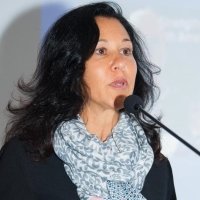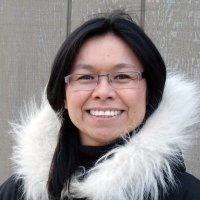Overcoming Remoteness: Arctic Innovation in Transportation, Energy and Connectivity
Press release from the Wilson Center
What makes the North American Arctic unique? In many ways, it is the remoteness and sparsity of the region that gives it its character: cultural integrity has been preserved, much of the land remains untouched, and political self-determination has been maintained. But its remoteness also gives rise to extreme economic challenges. Communities that are remote and off-grid face affordability and accessibility challenges that those in southern and urban areas do not. In particular, transportation, energy and connectivity are more difficult, and therefore more expensive, in the Arctic, with dramatic consequences for development. This affects not only the social well-being of Arctic residents, many of whom struggle with high cost food and housing, and limited access to health services, education and employment. It also affects the competitiveness of economic and resource development, and the ability to exercise the defense and security of the region.
There are no panaceas. But together, there are three, well-advanced, technologies that could dramatically improve the social, economic and security prospects of the North American Arctic in a climate conscious manner: airships, to address transportation needs; small modular reactors, to address energy needs; and fiber networks, to address communications needs. There is urgency: in order to improve northern quality of life, develop critical minerals needed for the energy transition, and enhance continental defense, the challenges of the Arctic must be overcome now, not in 2050.
Please join the Wilson Center for a discussion about the nature of remoteness, the opportunities and barriers to various solutions in the Arctic, and assess various public and private financing mechanisms to bring them to life.

Heather Exner-Pirot
Fellow; Senior Fellow, Macdonald-Laurier Institute, Canada
Jessica M. Shadian, Ph.D.
President and CEO, Arctic360
Madeleine Redfern, LL.B.
Chief Operating Officer, CanArctic Inuit Networks
MODERATOR
Jack Durkee
Program Associate, Polar Institute // Manager, Arctic Infrastructure Inventory
HOSTED BY
POLAR INSTITUTE
Since its inception in 2017, the Polar Institute has become a premier forum for discussion and policy analysis of Arctic and Antarctic issues, and is known in Washington, DC and elsewhere as the Arctic Public Square. The Institute holistically studies the central policy issues facing these regions—with an emphasis on Arctic governance, climate change, economic development, scientific research, security, and Indigenous communities—and communicates trusted analysis to policymakers and other stakeholders. Read more
CANADA INSTITUTE
Bound by common geopolitical interests and strong economic and cultural ties, Canada and the United States enjoy the world’s most successful bilateral relationship. The Wilson Center’s Canada Institute is the only public policy forum in the world dedicated to the full spectrum of Canada-U.S. issues. The Canada Institute is a global leader for policymakers, academics and business leaders to engage in non-partisan, informed dialogue about the current and future state of the relationship. Read more
DATE & TIME
Wednesday
Dec. 7, 2022
2:00pm – 3:00pm ET
Announcements are published as a service to readers. The sender is responsible for all content.
Announcements for publication can be submitted to [email protected].


